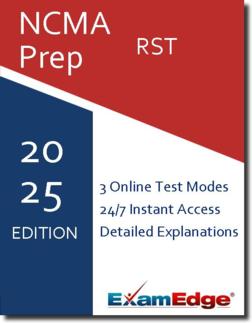NCMA RST (RST) Practice Tests & Test Prep by Exam Edge - Test Reviews
Based on 32 Reviews
- Real Exam Simulation: Timed questions and matching content build comfort for your NCMA RST test day.
- Instant, 24/7 Access: Web-based NCMA Registered Surgical Tech practice exams with no software needed.
- Clear Explanations: Step-by-step answers and explanations for your NCMA exam to strengthen understanding.
- Boosted Confidence: Reduces anxiety and improves test-taking skills to ace your NCMA Registered Surgical Tech (RST).

NCMA RST (RST) Practice Tests & Test Prep by Exam Edge - Review
NCMA Registered Surgical Tech - Reviews
Excellent
Based on
160
reviews
See why our users from 154 countries love us for their exam prep! Including 32 reviews for the NCMA RST exam.
Exam Edge is an Industry Leader in Online Test Prep. We work with our Institutional Partners to offer a wide array of practice tests that will help you prepare for your big exam. No Matter how niche field of interest might be, were here to help you prepare for your test day.
| 2.8M | 4.5M | |
| Users | Tests Taken | |
| 100K | 19 | |
| Unique Exams | Years in Business | |


